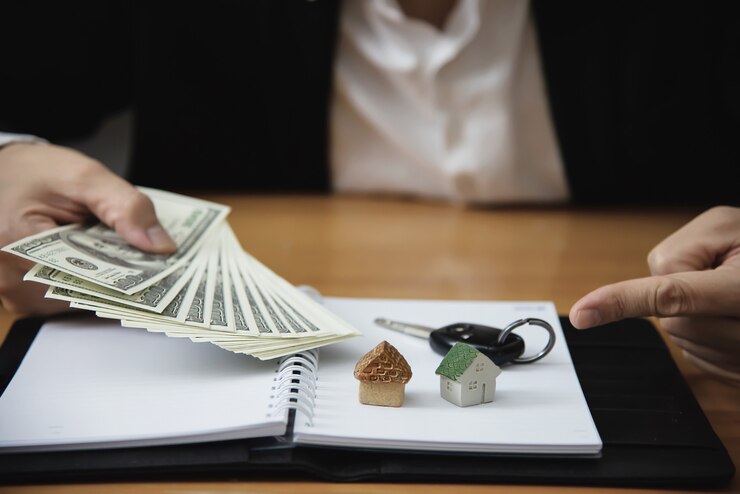
Navigating the world of payday loans can be a daunting task, especially when you’re in a financial bind. But fear not, as we delve into the intricacies of this short-term lending option in Jacksonville, FL. From understanding the legal landscape to identifying potential risks and exploring safer alternatives, this comprehensive guide will equip you with the knowledge to make informed decisions and avoid financial pitfalls.
Exploring payday loans in Jacksonville can feel a bit overwhelming, but we’re here to help make things clearer. Think of these short-term loans as a quick financial boost when your wallet is running on empty and you just need to get through until your next paycheck. However, it’s important to understand the rules and risks involved before you jump in.
A payday loan is essentially a small, short-term cash advance that’s meant to cover urgent expenses until your next payday rolls around. It’s like borrowing money from yourself in the future—with extra costs attached due to high interest rates and fees. While they can be handy in an emergency, knowing what you’re getting into is key.
The main appeal of payday loans is how easy they are to get. You don’t need much to apply, and the approval process can be super quick—making them attractive if you’re tight on cash. But beware: this convenience comes at a cost. High interest rates and fees can trap you in a debt cycle that’s tough to break free from—it’s like trying to quench your thirst with salt water.
In Jacksonville, state laws regulate payday loans with consumer protection in mind—but understanding these rules isn’t always straightforward. Before diving into any agreement, take some time familiarize yourself with local regulations concerning limits on fees or repayment terms—it’ll pay off more than cramming for any pop quiz ever could.
Looking to get a payday loan in Jacksonville quickly? Preparation is your best friend here. These loans are perfect for when you’re in a pinch and need cash fast, but there’s a bit of groundwork to do first. Don’t stress, though – with the right preparation, you can speed up the approval process significantly.
Start by getting all your important documents together before applying. Think of it as packing for an important trip – you wouldn’t want to leave anything behind. Most lenders will ask for proof of income, a valid ID, and details of your checking account. Having these ready beforehand is like having a reservation at a top restaurant; it just makes everything smoother.
All payday lenders aren’t the same. Take some time to find one that’s reputable and fair. It’s similar to finding the perfect coffee shop; you’ll want one with good reviews and great service rather than just any old place. Ask friends, check out online reviews, and compare different lenders until you find one that feels right.
Honesty really is the best policy when filling out loan applications. Just like painting an accurate picture on your resume, provide clear information about your finances without exaggerating or omitting details — lenders have ways of uncovering inaccuracies which could lead them not approving your application.
Thinking about getting a payday loan? It’s a bit like preparing for an important journey. You wouldn’t head to the airport without your passport, right? Similarly, understanding and meeting the eligibility requirements for a payday loan is key to making your application process smooth and improving your chances of getting approved.
Showcasing a steady income is crucial when applying for a payday loan. Lenders need to be sure you can pay back what you borrow. So, just like proving your age at a club entrance, expect to present documents such as pay stubs, bank statements, or tax returns that verify your income.
In today’s world where identity theft is common, lenders must confirm you are who you claim to be. Be prepared with government-issued ID—like a driver’s license or passport—much like needing ID to cash a check at the bank.
Lenders also need access to your checking account not only for depositing funds but also for withdrawing payments on due dates. Make sure you have details such as account and routing numbers ready—think of it as giving out an address so someone can send over that gift they promised.

Exploring payday loans in Florida can feel a bit like stepping into new territory. Just as you wouldn’t hit the road without knowing the traffic laws, it’s crucial to understand the rules around payday loans before diving in.
Imagine spotting a “Buy One, Get One Free” offer. It looks great until you notice hidden charges that aren’t so wallet-friendly. To prevent such surprises, Florida has set limits on how much you can borrow with a payday loan and what fees you can be charged. You’re allowed to borrow up to $500, and fees are generally capped at 10% of the loan amount plus a $5 verification fee—think of it as making sure you really get that deal without an unexpected price hike.
Ever felt like staying at a party longer than planned? Sometimes lenders might encourage you to extend or take out another loan too soon after your last one. In Florida, there are cooling-off periods and restrictions on rolling over loans which help ensure that borrowing doesn’t spiral out of control—it’s akin to having someone make sure your fun doesn’t turn into trouble.
Ordering something fancy from a menu only to find it’s not what was described is disappointing. That’s why Florida insists lenders clearly outline all terms before you commit—ensuring there are no surprises about what’s included in your financial ‘dish’. And if things don’t look right? Well-established consumer protection laws are ready to step in for assistance—like having someone who won’t hesitate to send back an unsatisfactory meal for correction.
Thinking about a payday loan? It might seem like an easy fix when money’s tight, but it’s crucial to tread carefully. Imagine jumping into a lake without knowing what’s under the surface—that’s taking out a payday loan without understanding the risks.
Payday loans can quickly become quicksand. The high interest rates and fees mean that if you don’t pay back the loan on time, you could end up needing another one just to cover the first, and so on. It’s like trying to climb out of a hole but instead of finding solid ground, you keep slipping back in deeper.
The best tool against falling into debt? A strong budget. Look over your income and expenses with care—make sure you can handle your basic needs and have something tucked away for unexpected bills. Think of it as putting on a life jacket before boarding a boat; it’s better safe than sorry.
Before you sign up for that payday loan, why not look at other options? Maybe talk to people you owe money to—they might let you pay later or in installments. Community groups sometimes offer help or advice too. Borrowing from someone close to you isn’t perfect either but could be less risky than getting trapped in endless payday loans.

When bills start stacking up and your bank account is nearly empty, grabbing a quick payday loan might seem like an easy out. However, there are safer options that can prevent future financial headaches. Let’s explore some alternatives that could be better for your wallet in the long run.
Belong to a credit union? You’re in luck. Credit unions are like supportive friends who help without expecting much in return. They usually offer loans with lower interest rates and more forgiving repayment terms compared to traditional payday lenders. This means you can manage your debt without drowning in high fees.
Before you consider another loan, why not chat with those you owe money to? Many creditors are surprisingly flexible if you discuss your financial struggles openly and honestly. It’s about striking a deal that gives you some room to breathe while keeping up with payments—no handouts, just helpful adjustments.
The support available from community organizations is often underestimated. Whether it’s non-profit credit counseling or local charities, these groups aim to help people overcome their financial troubles without falling into the debt trap of high-interest loans. It’s comforting knowing there’s a network supporting your journey back to stability.
A payday loan is like borrowing money from your future self. It’s a short-term cash advance designed to help you bridge the gap until your next paycheck arrives. The process is pretty straightforward: you provide some basic info and proof of income, and if approved, the lender fronts you a small sum of money—usually a few hundred bucks. The catch? Those loans come with sky-high interest rates and fees, so you’ll owe much more than you borrowed when it’s time to pay it all back on your next payday.
I get the appeal—payday loans are super easy to get and can feel like a lifeline when you’re in a tough spot financially. But here’s the thing: that convenience comes at a steep price. Those high interest rates and fees are like quicksand; if you can’t pay it all back immediately, you could easily get trapped in a never-ending cycle of debt.
Florida has some consumer protection laws in place to help prevent borrowers from getting in over their heads. For instance, there are caps on how much you can borrow—up to $500—and on the fees lenders can charge. There are also cooling-off periods that prevent you from immediately rolling one loan into another. It’s like having a friend at the party who stops you from going overboard and makes sure you get home safe.
Preparation is key if you need a fast approval. Get all your ducks in a row before applying by gathering proof of income, a valid ID, and your banking details. It’s like making sure you have your boarding pass and luggage ready before heading to the airport—it’ll make the whole process much smoother. And remember, honesty is the best policy on those loan applications. Lenders have ways of sniffing out any fudged numbers, kind of like a bloodhound catching a lie.
I’m glad you asked. Payday loans can be a slippery slope, so it’s always worth exploring some alternatives first. If you belong to a credit union, they often offer more affordable personal loans with way better terms. Or, believe it or not, sometimes just having an open and honest conversation with your creditors about your situation can lead to more forgiving payment plans. Community organizations and non-profits can also point you toward resources to regain your financial footing without resorting to high-interest debt traps. It’s about thinking outside the box and tapping into your support network—kind of like going to your wisest friend for advice before making any rash money moves.